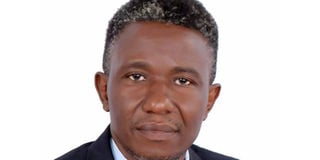Prime
State House Land Protection Unit: Illegal outfit causing confusion

What you need to know:
- ‘‘People are confused, no longer sure whether to run to courts of law or to State House”
To be fair, it wasn’t a very complicated case: two thieves, fully grown men, conspired to steal a dead man’s land - a huge, huge piece! It was light work for the courts to make a decision convicting the thieves and cancelling the certificate of title.
The opposition, comprising very sharp, intelligent, creative lawyers, began throwing case after case at my client – son of the deceased – and lost all nine or 10 of them. Eventually they ran out of legal options and my client repossessed his father’s land. A year or so later, a bombshell landed. The so-called State House Land Protection Unit intervened and summoned my client, accusing him of grabbing someone’s land. Pass this over your tongue again, slowly, and savour the taste: thieves, convicted by a competent court of law for stealing a dead man’s land, and who have exhausted every possible legal option available, are now turning to the Office of the President to help them retrieve their loot. A thief, properly certified so by court, is finding refuge in the highest office in the land!
One of the most byzantine acts of the Museveni administration lately is setting up of rather strange, high-sounding offices, each of them acting highhandedly and diametrically opposed to the systems and structures set up under the Constitution.
You hear of the State House Anti-Corruption Unit, State House Health Monitoring Unit, State House this, and State House that! As matter of fact, there are so many new offices set up under State House, none of them envisaged under the Constitution and statutes made thereunder, you find it difficult to properly keep count.
Scouting their accountability sequence gives you the feeling of peering through unfocused binoculars. Everything about them is hazy and smoky; you see the kind of stuff you see when you are emerging from a daze or coma. One thing is clear: they are clothed with presidential sanction and enjoy above-the-law status. So they go around the country making dramatic, extremely brutal arrests, most of them nicely orchestrated for the benefit of media cameras to show the general public that they are working and, therefore, relevant. When you follow up matters, usually you will find they never get to court. The few that make it to court never succeed because there is never evidence sufficient for a court to convict. It is all showbiz. But beyond the showbiz, at least in our case, there is usually an option for the person to settle matters ‘amicably’: in our case the chap demanded money for him to call the dogs off.
Our instance, therefore, suggests that instead of fighting corruption, the President’s very brilliant innovations are actually a big joke. Anyone who has the money or clout can run there for protection even if they are wrongdoers. And those who hope for mercy and can’t find it so easily just might have a chance to purchase that mercy.
More critically though, what should disturb Ugandans most is the fact that truth be told, the actions of the President are unconstitutional: he has no power under the Constitution to set up arrangements that are parallel to constitutionally established government structures. He took oath to defend the Constitution: he must respect and abide by its provisions. Measured under object and intent, this presidential action is constitutionally offside and must be challenged.
People are confused, no longer sure whether to run to courts of law or to State House. Whatever reasons informed his strategic intent, the net effect is clear: the President is able to exercise his will independent of established government structures. In short, he has his own government, while the citizens have theirs. The further effect is that he is able to circumvent the accountability mechanisms imposed by known law, thereby diminishing his accountability to the citizenry in terms of how he is exercising his power, even though he is using the citizens’ money to run a side government.
Worse still, the actions of the President are absolutely undermining the functionality of the lawfully established departments of government. This a case of Executive overreach; and for court-related matters it is clearly calculated to undermine the authority of courts of law, diminish public confidence in the Judiciary and render the orders of courts meaningless.
Mr Tegulle is an advocate of the High Court of Uganda




